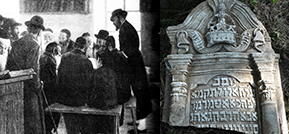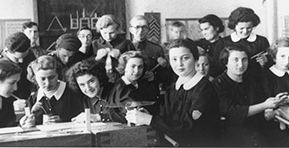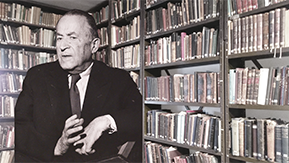Bilshivtsy
| Years | State | Province | District |
| Till 1772 | Polish-Lithuanian Commonwealth: Kingdom of Poland |
Rus Voivodship (Województwo ruskie) |
|
| 1772-1914 | "Hapsburg Empire", since 1804 - Austrian Empire, since 1867 - Austro-Hungarian Monarchy |
Kingdom of Galicia and Lodomeria (Königreich Galizien und Lodomerien) |
Rohatyn powiat |
| 1914-1915 | Under Russian occupation | General-Government Galitsiia | |
| 1915-1918 | Austro-Hungarian Monarchy |
Kingdom of Galicia and Lodomeria (Königreich Galizien und Lodomerien) |
Rohatyn powiat |
| 1918 - May 1919 | West-Ukrainian People's Republic | ||
| May 1919 - Sept. 1939 | Republic of Poland | Stanislawów wojewódstwo | Rohatyn powiat |
| Sept. 1939 - June 1941 | USSR: Ukrainian Soviet Socialist Republic | Stanislav oblast' | |
| June 1941 - July 1944 |
Under German occupation:
|
Distrikt Galizien | Stanislau Kreishaupt-mannschaft |
| 1944-91 | USSR: Ukrainian Soviet Socialist Republic | Stanislavov (Stanislaviv) oblast'; since 1962 renamed Ivano-Frankovsk (Ivano-Frankivs'k) oblast' | Bilshivtsi raion |
| Since 1991 | Republic of Ukraine | Ivano-Frankivs'k oblast' | Halych raion |
-
| Year | Total | Jews | Percentage of Jews |
| 1765 | - | 178 | |
| 1880 | 2,932 | 1,760 | 60.00% |
| 1890 | 3,481 | 2,658 | 76.35% |
| 1900 | 3,938 | 2,256 | 57.28% |
| 1910 | 4,629 | 2,438 | 52.66% |
| 1921 | 2,186 | 825 | 37.74% |
| 1931 | ? | 1,200 | |
| 1959 | 2,600 | 0 | |
| 2005 | 2,254 | 0 |
Bilshivtsi is a village on the Gnilaya Lipa River (a tributary of the Dniester), 8 km from Halych and 3 km from the highway Lwow - Ivano-Frankivsk. Situated in a boggy plain. First mentioned in 1426. Chartered in 1609. Jews are entioned in documents going back to 1635.
Once Bilshivtsi was a town with Jewish, Polish and Ukrainian population, but now it is a quite Ukrainian village.
The Annunciation church and Carmelite monastery, which were built in 1624 and desecrated by the Soviets, are being restored by Poles.
One synagogue was rebuilt during the Soviet times into a House of Culture. Its building was enlarged with attachments on the western and southern sides. Another synagogue, standing nearby, was destroyed and used as building material for the House of Culture.
At the Jewish cemetery on a hill, an Austrian artillery unit was stationed during World War I. The traces of the entrenchments are still visible, while all tombstones disappeared in the Soviet times.
For photographs made by Dr. Vladimir Levin in August 2009 see Gallery section.
The synagogue building in the center of the town serves today as a club and a concert hall.
פריטים רלוונטיים לקהילה
| כותרת | סוג הפריט | שנה |
|---|---|---|
| Pleischer | מאגר שמות | |
| "Arkusze ewidencyjne" i wykazy Zarządów towarzy... | אינדקס מהארכיון המרכזי לתולדות העם היהודי | 1930 |
| Arkusze ewidencyjne i wykaz członków zarządów s... | אינדקס מהארכיון המרכזי לתולדות העם היהודי | 1932 |
| Arkusze ewidencyjne i wykazy członków zarządów ... | אינדקס מהארכיון המרכזי לתולדות העם היהודי | 1930 |
| Arkusze ewidencyjne i wykazy członków zarządów ... | אינדקס מהארכיון המרכזי לתולדות העם היהודי | 1930 |
| Arkusze ewidencyjne i wykazy członków zarządów ... | אינדקס מהארכיון המרכזי לתולדות העם היהודי | 1934 |
| Arkusze ewidencyjne i wykazy członków zarządów ... | אינדקס מהארכיון המרכזי לתולדות העם היהודי | 1933 |
| Barbershop in Bolszowce | מסמכים ארכיוניים | 1939 |
| Benjamin Teichberg | מאגר שמות | 1899 עד 1942 |
| Bilshivtsi | גלריה |






